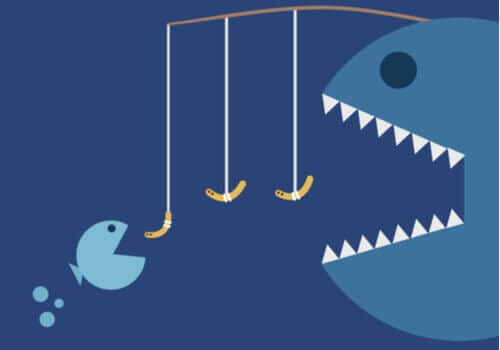Commerce and advertising are areas related to marketing, an area that often uses mechanisms to “motivate” people to buy products. Sometimes they get confused and that’s because they deliberately omit information so they can sell more, so they can be said to be used for the purpose of misleading the consumer.
The law prohibits misleading advertising practices in most countries, however, the truth is that in addition to many advertisers and merchants breaking the law, they are not as transparent to consumers as they should be.
- There are many ways to deceive the consumer.
- In fact.
- Some are so subtle that they even go unnoticed.
- So every person should be careful not to be manipulated to make unnecessary and expensive purchases.
“In a marketing class in college, we learned a case study that showed us that ‘mask’. Does this mean you can deceptively use two-way words to sell a product, even if they can lead customers to think that your words have a different meaning?-Suzy Kassem-
One way or another, any deception to the consumer is based on the deliberate omission of information, however, this is a fundamental point in advertising a product in some cases, the curious thing is that this strategy is frequently used, while providing a lot of information.
Credit card promotions are an excellent example of this form of deception. They invite consumers to events such as “exclusive winners’ vacations. “Marketing specialists provide a lot of information to unsuspecting customers about the benefits of winning a prize like this, talking about the destinations it covers, which hotels the person would stay in, etc.
What they do not say is that this holiday is only valid for the worst times of the year to visit a certain place and with a certain number of companions so that the benefits are effective.
This type of deception to the consumer occurs when the quantity or quality of a product or service decreases without prior notice or direct notification to those who benefit from it, in one way or another, the consumer ends up with something different from what was being proposed.
An example of this is some credit cards that offer significant benefits from their use, may offer incentives such as the billing exemption for certain services or the accrual of points when the consumer uses the card, in doing so, the benefits are sometimes negligible compared to the obligations they father.
It is one of the most commonly used mechanisms to confuse consumers, it is to offer important benefits in exchange for hiring a service or buying a product, then the consumer sees that the benefits are limited and the conditions very restrictive.
Internet or cable services are an example, often offer up to six months of free service, but to access it you have to sign a contract of two years or more, often at a high cost, in this way they always recover the money they receive. did not receive during the “free” months.
This type of consumer deception is typical of sites dedicated exclusively to promotions, which offer products at prices very attractive to the consumer, but do not inform in a timely or clear manner that they have a defect or that have already been used.
These defects become noticeable over time. This happens, for example, with reconstructed or refurbished electronic devices that look new but obviously are not, or with garments that are only misdone after they are put on.
Do not be naive: nothing is free in commerce, that would be absurd, because the logic of any private company is to profit, so free does not correspond to this principle. It is important to keep this in mind.
When someone gives you a “free sample,” for example, it’s obvious that they’re not asking for anything in return, at least directly. However, the cost of all this?Do you show for free? It is already added to the promoted product. You can even buy this product at a lower cost if companies do not use this type of advertising.
People often ignore all these kinds of consumer deceptions. Shopping is no longer the same as before. In the past, you bought what you needed, and period, now it’s become a fun and enjoyable experience, or at least that’s what marketing specialists make you believe. Therefore, you should be careful not to be manipulated.

